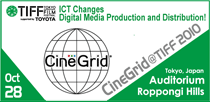2010.10.25
[Event Reports]
10/25 (Mon) International Competition Juries Press Conference: Notes & Quotes
The International Competition Juries had a Press Conference as follows:
Press Conference: October 25th (Monday), from 17:00 @Movie Café
Appearance: Neil Jordan, President of International Competition Jury (Film Director); Judy Ongg (Singer/Actress/ Wood Block Print Artist); Domenico Procacci (Film Producer); Hur Jin-ho (Film Director); Kichitaro Negishi (Film Director)
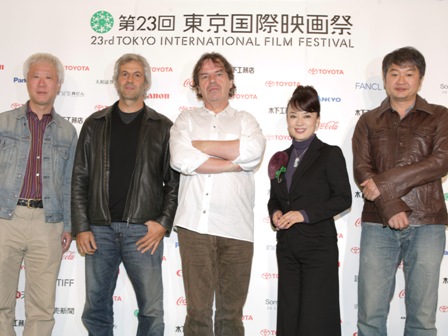
For the 23rd Tokyo International Film Festival, 15 films have been selected for the Competition section, from among which the Tokyo Sakura Grand Prix and other awards will be selected. The 5 members of the jury held a press conference this evening to comment on their enthusiasm towards the competing films and the festival.
Neil Jordan: I am very pleased to be here in Tokyo. I had a film at the Tokyo International Film Festival in 1985 called The Company of the Wolves. When I brought my film then, I watched it with the audience. But as a judge, our decisions will only be our own which is a whole new experience.
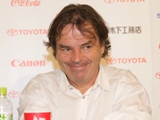
Judy Ongg: Since a child, I've been a great fan of movies because they were windows that introduced me to worlds I'd never seen. We've seen 5 films so far and I hope to make a good selection for the best film.

Domenico Procacci: I was quite surprised when I was invited to this jury but I appreciate it a lot. It is my first time to come here since when I shot the film Silk with Sonoko Sakai starring Koji Yakusho and Miki Nakatani.
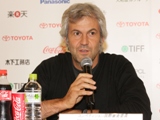
Hur Jin-ho: 9 years ago, one of my films, One Fine Spring Day was shown here at the Competition section for which I won an award. Now that I am back as a judge, I look forward to seeing the films for the rest of the week.
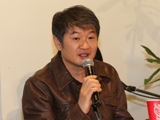
Kichitaro Negishi: We've been watching the Competition films intensely for the past two days. My honest opinion is that it is difficult for a film to be selected at a film festival but judging films is equally a hard task. I hope I'll encounter a
film that would make me forget that I am watching it to judge it.
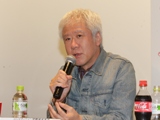
ŌĆĢŌĆĢ The members of the jury were asked about their criteria for judging.
Neil Jordan: There are no criteria. You judge a film the way you judge any a piece of work of the imagination. It either reaches out and grabs you or it doesn't. I find it amazing at film festivals that the most unlikely film can suddenly be
a revelation. The only criterion is my emotional response to what I am looking at.
Judy Ongg: I think about whether I could watch the film as an audience rather than be caught up in the criteria of judging. Just as Mr. Jordan said, it's all about whether a film grabs your heart.
Domenico Procacci: Judging a film is something very subjective. The 5 of us here can respond in 5 different ways to the same film. What's crucial is whether a film grabs me and how I emotionally and intellectually respond to that work.
Hur Jin-ho: While judging, if I'm asked, "If you were the director of this film, would you be able to make it better?" My answer will probably be "No." In that sense, if there is any measurement to judge a film, it would probably be
whether I am able to find a word that literally moves my heart.
Kichitaro Negishi: After watching a moving film, if I still have the same feeling 10 minutes later and feel that the
filmmakers hid themselves throughout the film, then it is a film that has grabbed my heart.
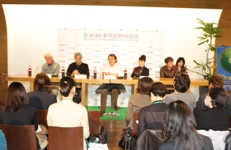
ŌĆĢŌĆĢ The judges all touched upon the reality of internet and mobile communication rapidly bringing changes to the film industry. As well, they commented on the environment and crucial issues, such as piracy, which the present day film industry entails.
Neil Jordan: It is a fact that there is a crisis in cinema going all over the world and it is extremely difficult times for individual voices to find an audience in Japan, Ireland, and the rest of Europe and North America. It is important that films do not find themselves in a ghetto of festivals. Festivals are enormously important because they are one of the only avenues left for serious filmmaking. Yet, it is also important that films leap beyond the festival circuit and find an audience throughout the world. They are the kind of films I hope to find in this festival.
Kichitaro Negishi: Japanese Filmmaking has a long history of almost 120 years. We perhaps have peaked to the point where great stories have already been told, which could be a reason why we are facing this crisis in the film industry.
It's true that mobile technology is so handy that we can even film things on our phones these days. Yet, to be able to see great works on a huge screen is an experience almost close to shock and is an emotional moment which is what film is all about.
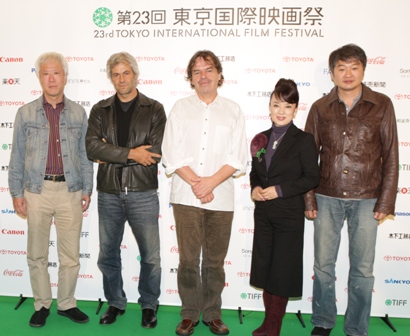
What makes a film festival of value is that minor films have the opportunity to move people and to be in the limelight. Also, it is where films gather from around the world, opening windows to other countries and cultures. The film that grabs the heart of the members of the jury and the audience will, without doubt, take the Tokyo Sakura Grand Prix this year!
Press Conference: October 25th (Monday), from 17:00 @Movie Café
Appearance: Neil Jordan, President of International Competition Jury (Film Director); Judy Ongg (Singer/Actress/ Wood Block Print Artist); Domenico Procacci (Film Producer); Hur Jin-ho (Film Director); Kichitaro Negishi (Film Director)

From left, Kichitaro Negishi, Domenico Procacci, Neil Jordan, Judy Ongg, Hur Jin-ho ©2010 TIFF
For the 23rd Tokyo International Film Festival, 15 films have been selected for the Competition section, from among which the Tokyo Sakura Grand Prix and other awards will be selected. The 5 members of the jury held a press conference this evening to comment on their enthusiasm towards the competing films and the festival.
Neil Jordan: I am very pleased to be here in Tokyo. I had a film at the Tokyo International Film Festival in 1985 called The Company of the Wolves. When I brought my film then, I watched it with the audience. But as a judge, our decisions will only be our own which is a whole new experience.

©2010 TIFF
Judy Ongg: Since a child, I've been a great fan of movies because they were windows that introduced me to worlds I'd never seen. We've seen 5 films so far and I hope to make a good selection for the best film.

©2010 TIFF
Domenico Procacci: I was quite surprised when I was invited to this jury but I appreciate it a lot. It is my first time to come here since when I shot the film Silk with Sonoko Sakai starring Koji Yakusho and Miki Nakatani.

©2010 TIFF
Hur Jin-ho: 9 years ago, one of my films, One Fine Spring Day was shown here at the Competition section for which I won an award. Now that I am back as a judge, I look forward to seeing the films for the rest of the week.

©2010 TIFF
Kichitaro Negishi: We've been watching the Competition films intensely for the past two days. My honest opinion is that it is difficult for a film to be selected at a film festival but judging films is equally a hard task. I hope I'll encounter a
film that would make me forget that I am watching it to judge it.

©2010 TIFF
ŌĆĢŌĆĢ The members of the jury were asked about their criteria for judging.
Neil Jordan: There are no criteria. You judge a film the way you judge any a piece of work of the imagination. It either reaches out and grabs you or it doesn't. I find it amazing at film festivals that the most unlikely film can suddenly be
a revelation. The only criterion is my emotional response to what I am looking at.
Judy Ongg: I think about whether I could watch the film as an audience rather than be caught up in the criteria of judging. Just as Mr. Jordan said, it's all about whether a film grabs your heart.
Domenico Procacci: Judging a film is something very subjective. The 5 of us here can respond in 5 different ways to the same film. What's crucial is whether a film grabs me and how I emotionally and intellectually respond to that work.
Hur Jin-ho: While judging, if I'm asked, "If you were the director of this film, would you be able to make it better?" My answer will probably be "No." In that sense, if there is any measurement to judge a film, it would probably be
whether I am able to find a word that literally moves my heart.
Kichitaro Negishi: After watching a moving film, if I still have the same feeling 10 minutes later and feel that the
filmmakers hid themselves throughout the film, then it is a film that has grabbed my heart.

©2010 TIFF
ŌĆĢŌĆĢ The judges all touched upon the reality of internet and mobile communication rapidly bringing changes to the film industry. As well, they commented on the environment and crucial issues, such as piracy, which the present day film industry entails.
Neil Jordan: It is a fact that there is a crisis in cinema going all over the world and it is extremely difficult times for individual voices to find an audience in Japan, Ireland, and the rest of Europe and North America. It is important that films do not find themselves in a ghetto of festivals. Festivals are enormously important because they are one of the only avenues left for serious filmmaking. Yet, it is also important that films leap beyond the festival circuit and find an audience throughout the world. They are the kind of films I hope to find in this festival.
Kichitaro Negishi: Japanese Filmmaking has a long history of almost 120 years. We perhaps have peaked to the point where great stories have already been told, which could be a reason why we are facing this crisis in the film industry.
It's true that mobile technology is so handy that we can even film things on our phones these days. Yet, to be able to see great works on a huge screen is an experience almost close to shock and is an emotional moment which is what film is all about.

©2010 TIFF
What makes a film festival of value is that minor films have the opportunity to move people and to be in the limelight. Also, it is where films gather from around the world, opening windows to other countries and cultures. The film that grabs the heart of the members of the jury and the audience will, without doubt, take the Tokyo Sakura Grand Prix this year!

